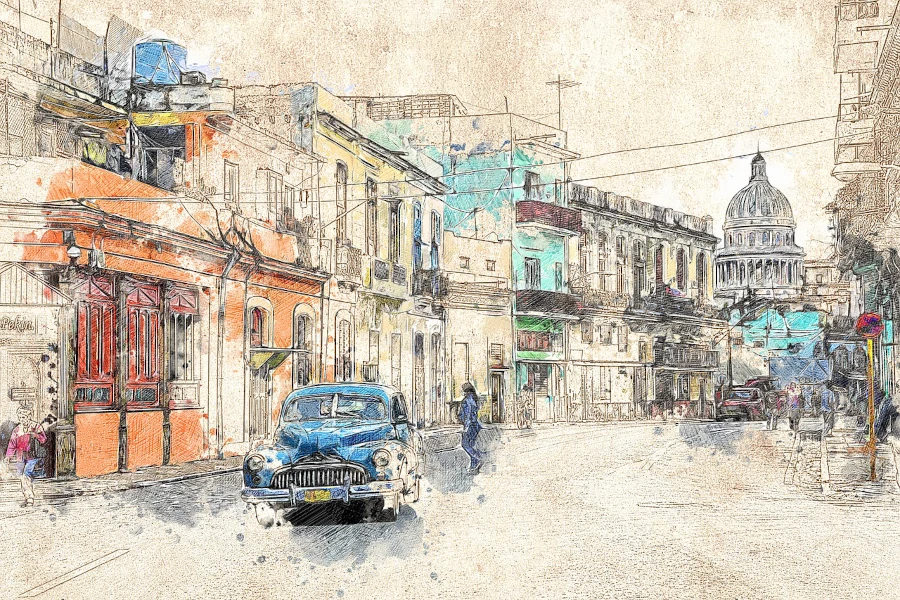
Five Literary Quotes Connecting Memory & Sense
Words By Carissa Villagomez, Art By Geralt
When we stumble upon something that triggers a memory, neuronal circuits fire away to decipher what exactly the association is and to pull up the stored recollection. Smell, taste, touch, hearing, and sight all serve as sensory connections to the world around us so that we can form and recall memories. What better way to luxuriate and ponder this phenomenon than the written word? Below is a list of literary quotes that either directly discuss memory or portray a character trying to recall a memory. Either way, they encourage the reader to recall something themselves due to the provocative nature of the sense evoked. Dive in to exercise your neural pathways!
1. Smell as recollection:
“The house smelled like fireplace kindling and hot water in old brass pipes—like metal melting into wood and becoming something all its own. It smelled like his childhood. Like chaos and terror and oatmeal cookies and lamb stew and nighttime in front of that drafty front window.”
Melodie Ramone, Lights of Polaris
This quote by Ramone evokes how strongly a smell can transport us years in the past, to memories long buried and forgotten. While everyone’s childhood has its own unique set of smells, the experience captured here reminds the reader of the powerful impact senses have on memory and how to use them in writing to capture that.
2. Taste as transportation to the past:
“I raised to my lips a spoonful of the tea in which I had soaked a morsel of the cake. No sooner had the warm liquid, and the crumbs with it, touched my palate, a shudder ran through my whole body, and I stopped, intent upon the extraordinary changes that were taking place [ . . . ] Whence could it have come to me, this all-powerful joy? I was conscious that it was connected with the taste of tea and cake, but that it infinitely transcended those savours, could not, indeed, be of the same nature as theirs.”
Marcel Proust, Swann’s Way
Proust captures the intense sensation of when a simple taste throws us backward in time. We struggle to recollect the memory, continuing to nibble and drink to coerce the answers out of our minds. Everyone has experienced the visceral connection between taste and memory that uses sensory input to assert order over the endless logs of recollections stored in our brains.
3. Touch to recall:
“Touch has a memory. O say, love say, / What can I do to kill it and be free in my old liberty?”
John Keats, “What can I do to drive away”
Here, Keats bemoans how unwelcome sensory input immerses us in painful memories of lost experiences. A simple touch, from brushing against a soft blanket to the perceived texture of a handshake, can ignite a thousand recollections at times when all we wish is to forget.
4. Hearing a voice and remembering whose it is:
“The weeping fit would pass, and I would drag myself back to the mirror expecting to see a child version of myself. ‘Who are you?’ I’d ask. I could hear the words; it sounded like me, but it wasn’t me. I’d watch my lips moving and say it again, ‘Who are you?’”
Alice Jamieson, Today I’m Alice: None Personalities, One Tortured Mind
When we contemplate sound triggering memory, we often recall snippets of experiences that happened to us or around us—the sound of breaking glass, the whistle of a tea kettle, the guffaws of another person. We rarely consider the musical albums of our singular existence, like the sound of our whistling or our laughter. So, what happens when we forget a sound that is integral to our identity, something that is important to how we perceive and associate with ourselves in an auditory manner? This quote explores the consequences of this frightening question by diving into the author’s own experiences with dissociating her own voice with her identity.
5. Seeing a familiar sight from childhood:
“Yet no painter could have re-created what she saw more convincingly. Every detail was as she remembered. At the bottom of the stone-cobbled path was a pond with rose-flushed lilies, and a marble bench under the cherry tree.”
Elizabeth Lim, Reflection
We can also be mentally transported to the past by coming across a familiar sight. The narrator of Lim’s Reflection returns home after time away, and the vivid sights remaining from her childhood inspire awe and nostalgia in her as the past and present blend together in a display that makes the reader envision scenes of beloved places from their own histories.
There you have it! Interested in delving deeper into the nature of this tenuous human property? Pick up a copy of F(r)iction #17, Memory!




